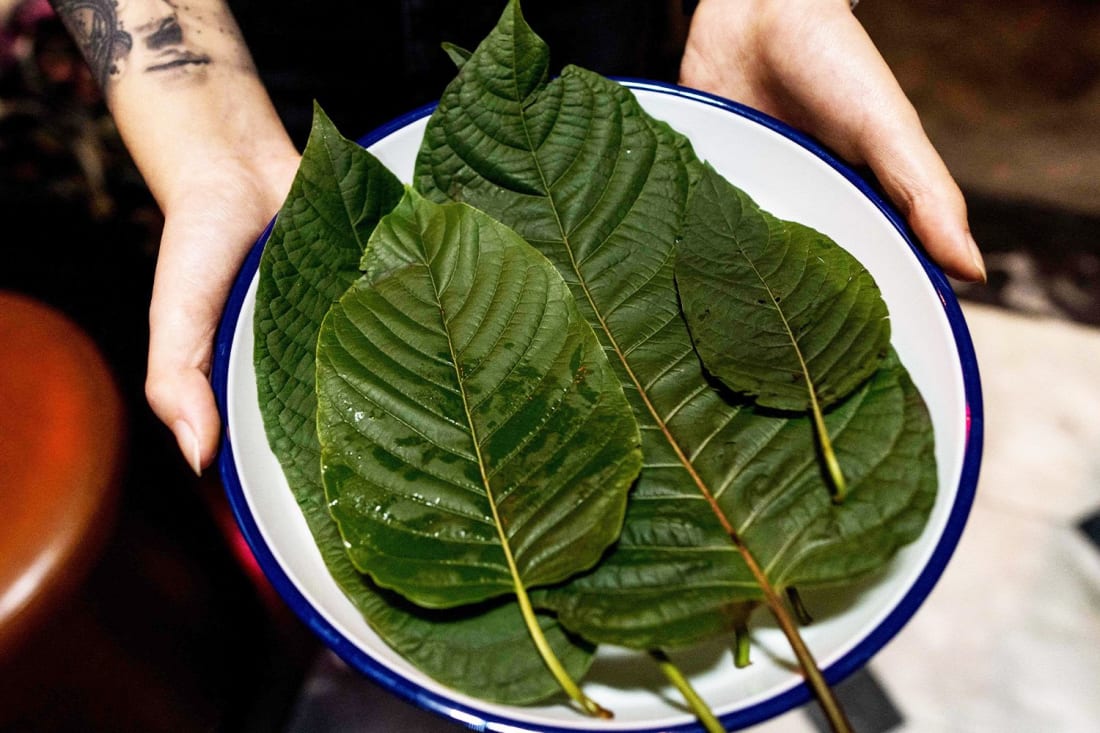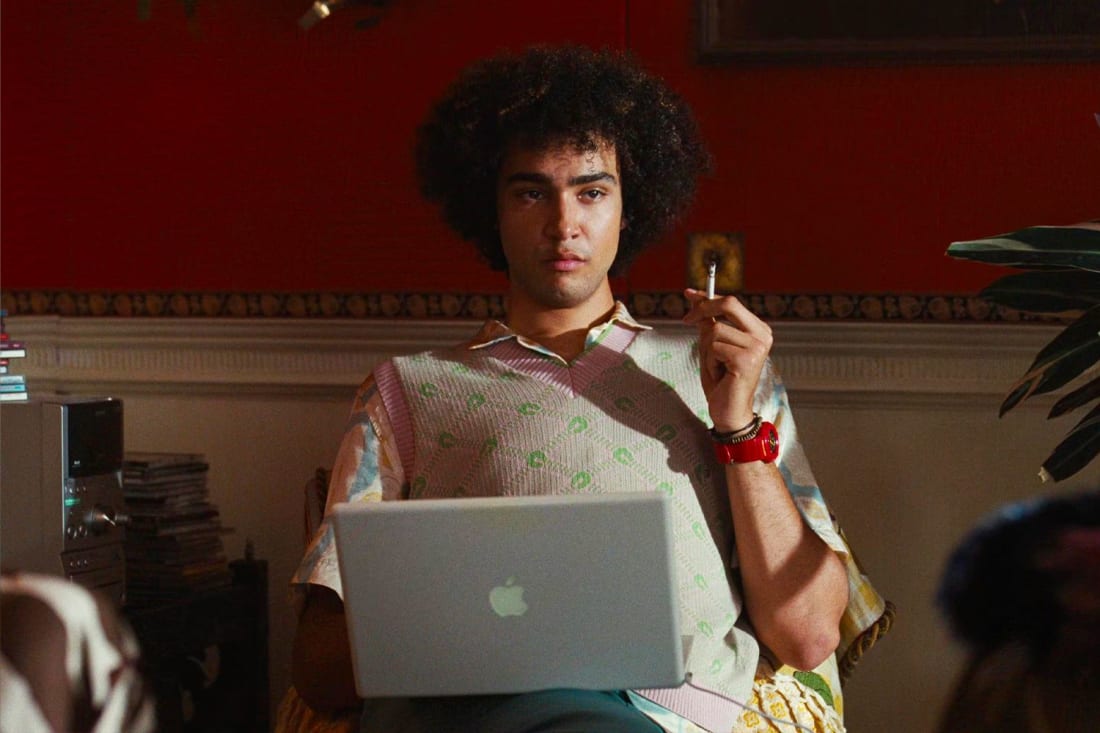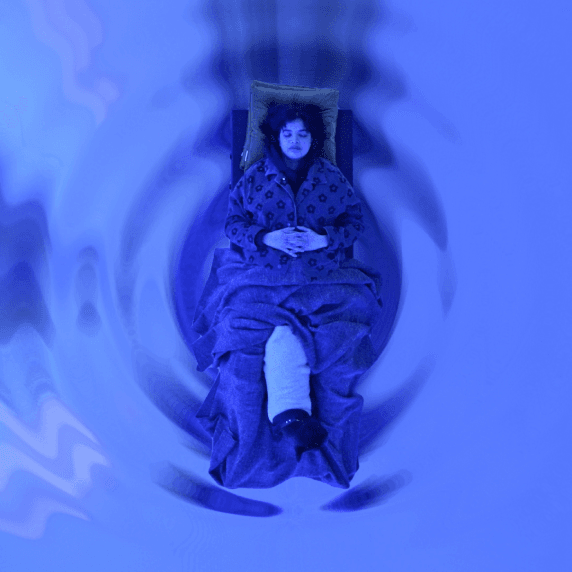Happiness Now: An Expert Guide to Finding Joy in the Age of Crisis
From philosophers to psychics, woo speaks to a cross-section of ‘experts’ about the elusive state of happiness
From philosophers to psychics, woo speaks to a cross-section of ‘experts’ about the elusive state of happiness
What does happiness feel like? Butterflies dancing in your stomach, skin tingling, a fizzing sensation from head to toe? Or is it more peaceful – a kind of calm that washes over you like a cool shower on a hot day, leaving in its wake a deep sense of contentment?
With the brilliant and necessary opening up of conversations about depression, anxiety and other mental health issues, many of us are finding ourselves more aware of negative emotions than we are the gentle, comforting ‘okayness’ of a good life well lived. We spend so much time striving for certain states, that it’s easy to miss happiness when we do experience it. Learning to notice when we feel good, and to be present in those moments is important, because just like all feelings, they tend to be in constant flux.
As an emotion, happiness isn’t simple – it’s not all skipping through fields with an inane grin on our face, and it means vastly different things to different people. For musician Pauli Lovejoy there is a happiness to be found in the interaction between performer and audience, creating a mood that is profoundly alive. Professor Bell talks of a sense of purpose and pleasure and creativity, while Psychic medium Fleur, who works with deep cerebral awareness to help people navigate grief and discover a way forward, finds her own personal joy in activities that connect her less with her mind and more with her body. It’s a recurring theme in the interviews below – from philosophers, to hypnotists, singers to embodiment coaches swapping thinking for truly feeling seems key to acknowledging what happiness really means.
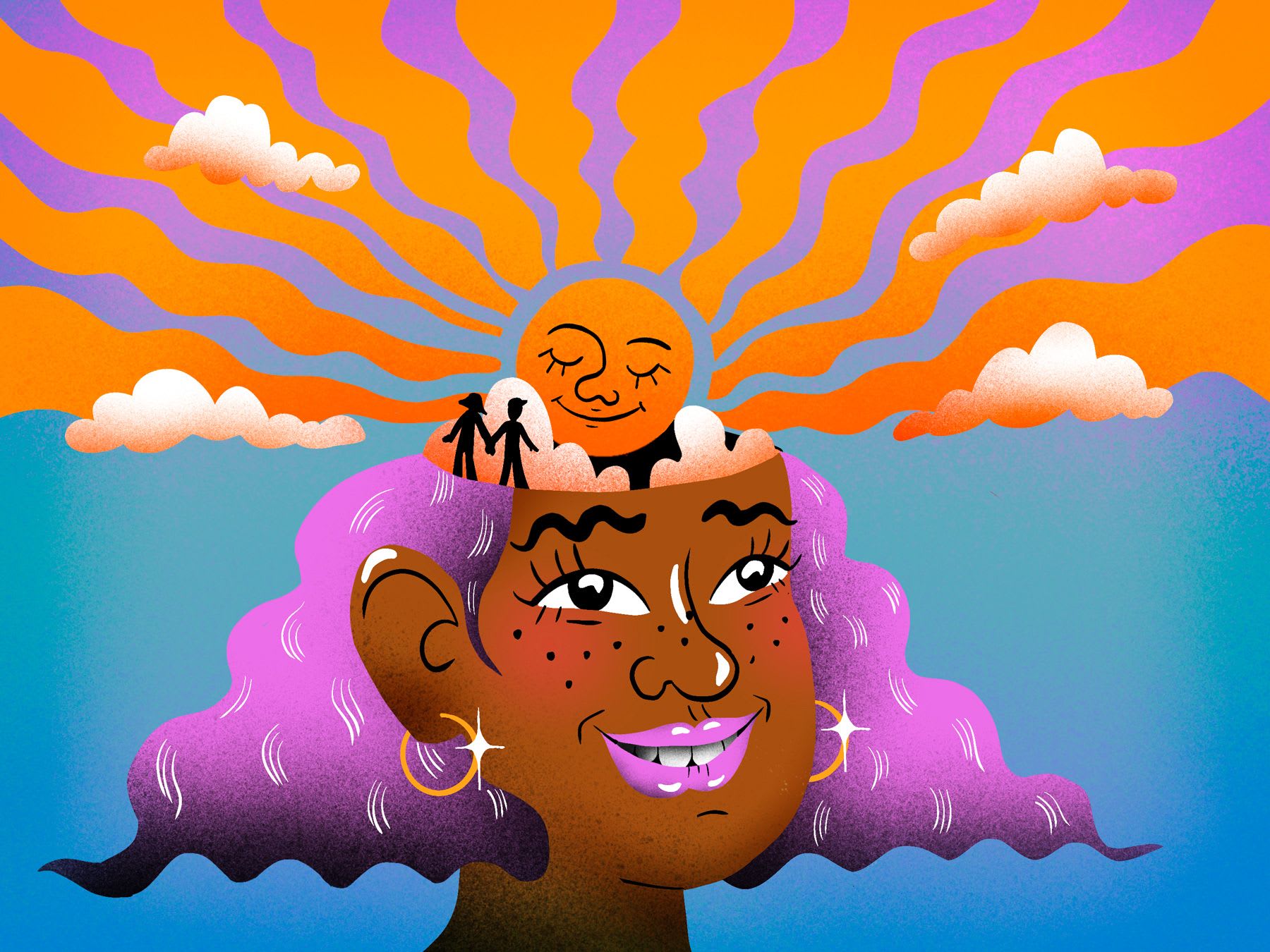
Michele Occelli is a London-based hypnotist whose clients have described his therapy as ‘life changing’ and ‘profoundly transformational’. He uses the ‘problem-solving creative nature of the subconscious mind’ to release established patterns of behaviour, decondition unhelpful ways of thinking and feeling, and release trauma.
“I am slightly uneasy around people who say, I'm enlightened. Not one single person is going to provide all the tools you need [to be happy], not one single package or scheme or school of thought, because your life is going to be so different at different points. So it’s a matter of trial and error - when they work, apply them, and move on to different things when they don't.
Psychedelics and hypnosis can create very powerful states that connect back to everyday reality. They have an expansive capacity, which means that you come out of them more sensitive and able to notice the good in everything that is around you. They can help us to feel content with our surroundings and to find beauty in things that we hadn't noticed before.
Studies have shown time and again that it is really connection and a life rich in friendships and other kinds of relationships that makes us live longest and feel happiest. No elephant wanders in the Savanna by themselves. They hang out in groups. Some people can go and sit on a mountain by themselves for three years and meditate and they get huge results. But most people who do this end up having schizophrenia and paranoid delusions. Healing happens between people. We're not really designed to be alone.
Having said that, sometimes we do need quiet so that we can let feelings which are brewing and moving through us be noticed. We must give them time and give them attention, including sadness, including fear. Therapy is a way to do this. It allows us to receive physical and emotional signals, mental pictures, and memories and stay with them. Sadness can feel like it's a big wave in the sea that arrives, but rather than running away from it, or holding on to a rock, it’s important that we just let ourselves be taken by it, confident that we will float.”
Pauli The PSM is a musician who has worked as the musical director for Harry Styles, FKA Twigs and Jamie XX tours and played alongside everyone from Gorillaz to Sampha. Most recently, they released the ambient album OFFAIR: The Power of Your Subconscious Mind Vol 1, inspired by the ways in which sound can help us to heal. The album involved collaborations with veteran NASA astronauts.
“The second that we become conscious of our pursuit of happiness, it becomes this thing that is unattainable. It becomes about chasing an idea. I don't think true happiness is an idea, I think it's a feeling.
I recently released an ambient music album called ‘Off Air: The Power of your Subconscious Mind’ inspired by space and astrology. There are so many studies about psycho acoustics and how vibrations in sound can affect the cells in our body, and how different frequencies can help heal us in specific ways. I’m interested in the science of sound and how it can become medicinal. But equally, there's something magical about the coming together of people to listen to music. I’ve just got home after musically directing and playing percussion on Harry Styles’ stadium tour. I experienced that reciprocal joy with an audience first-hand.
I think happiness comes from learning to switch off from things that aren't real. We need to step away from the metaverse and dig deeper within ourselves, and I don't think social media can ever really be a conduit to that. Music can be, art can be, meditation – but not Instagram. I try to live in a vibration of happiness most of the time, so I notice if I slip out of it more than I recognise when I’m in it… Optimistic by Sounds of Blackness is guaranteed to lift my mood. It's my happy song.”
Elle Bower Johnston is an embodiment coach, yoga instructor and movement teacher. Her work centres around helping people feel comfortable in their own skin and cultivating a deep relationship with themselves and the world around them.
I experience happiness as a kind of fizzing in my stomach and a lightness in my throat and my head. It makes me carry my body differently and have a softness and openness to the world. Thinking is seen as the peak of what it is to be human. But there is so much that we miss if we stay just floating in our heads, away from our bodies and our embodied experiences. There's a real depth of being alive that you need to be in your body to experience. But we’re not taught how to be in our bodies. We're not taught to listen to the quiet, nonverbal language that our bodies speak.
I work with trans and non-binary people to find a level of okayness with their physical body, while still feeling not entirely at one with it. It’s a practice and it's something that people stay in a relationship with - there's no end goal where we go, “cool I’m happy with my body now”. And that's it forever. I think 'okayness' is what we should strive for more than body positivity, which can become a pressure to be loving ourselves all the time. Contentment is a much more useful state to move towards because we can be content and really sad, joyful, or tired, or furious. The ‘good vibes only’ mentality denies that we're all human.
At the moment, what's really helping me be present and be happy and tuned into aliveness is a morning practice of breath work and free writing. Through these very strange and challenging times, instead of railing against the things that drive me insane and make me feel sick about the world, I have tried to turn my energy towards the things that I want to bring into the world. I'm not sure that necessarily equals happiness, but it does turn a little bit more towards hope, rather than despair. And I think that might be something that a lot of us need right now.
Fleur Leussink is a psychic medium who has worked with Lana Del Rey and Emma Roberts. Named one of the 'Best Mediums in Los Angeles', her ability to directly communicate with loved ones 'in spirit' has connected countless families from all around the world.
“Having done so many readings, I find it fascinating that people who are really successful, who have nailed relationships, or their career, or really found full alignment in health or finances - they found that kind of happiness and success through listening to themselves over listening to the external world. Nurturing our inner voice is so important, trusting instinct and tuning into our gut.
When I sit with people in readings I find across the board, it is the sadder aspects of life, the more grief stricken parts that create great transformation, the need to seek out answers, to have self-awareness, to dig deeper into what we desire, what we want to create. And so, I think that sadness can have an amazing capability to turn our lives around in a way that happiness often doesn't.
[Being a psychic and a medium and connecting with people’s emotions on such a deep level] means I need to recognize when to switch off. For me, it's more about doing nurturing activities, rather than activities that make me happy. I go salsa dancing a lot, I really like boxing. Because I spend so much of my day in the emotional, mental, spiritual world, I seek out a sense of groundedness from the physical.
I actually place less importance on happiness, and more importance on peace for myself. And I think I can find peace in moments of sadness, or a sense of, yep, I'm here, and I accept that I'm here, which is the sense of peace for me. It’s less about it having to feel heightened and good and maintaining that high level all the time.”
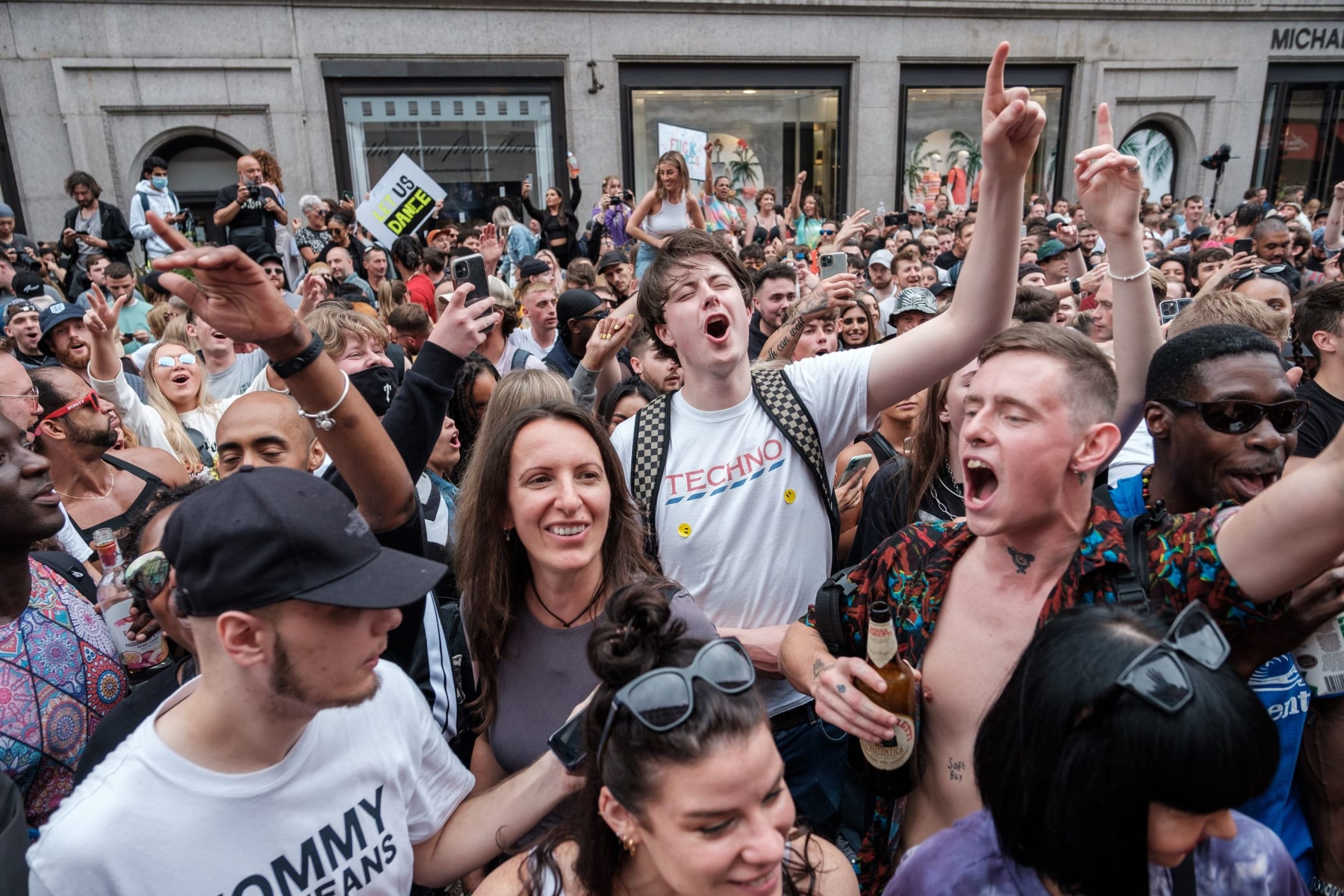
Kathryn Sophia Belle is the tenured associate professor of philosophy at the Pennsylvania State University and founding director of the Collegium of Black Women Philosophers. Working with private clients, she also uses her Philosophical, Purposeful and Practical Approaches in La Belle Vie, her life-coaching practice.
“Why are people so obsessed with happiness? Is it real? Is it attainable? Historically, these questions have come up a lot. People tend to go to Aristotle for answers. Beauty was part of his equation for happiness, [as well as] material goods, wealth, friendship and good standing in society. But I think it is interesting to challenge where people have derived meaning in their lives from happiness. It is not necessarily at the core of what I'm seeking. Things like pleasure are important to me, things like intellectual stimulation, connecting to nature, what Audre Lorde calls ‘erotic empowerment’ is important to me; being connected to a sense of purpose and pleasure and creativity. I would invite people to expand the definition of happiness. How do we leave space for how each person or how different groups of people or different societies conceptualise and express happiness for themselves? I'm very resistant to a kind of imposed notion of, ‘this is what happiness is’.”
“I'm also not I'm not a fan of the whole, ‘I have to be miserable in order to know what it's like to be happy’ idea. I think it's a false dichotomy. I think we need to get out of the binary of happy versus sad or good versus bad. We also need to let go of this idea that there's ever going to be this static or steady state of happiness. This is something else we get from philosophy. Whether you're talking about Heraclitus, and the idea that you can't step in the same river twice because it's constantly changing, or you're looking at a radical black feminist like Octavia Butler who said ‘all that you touch, you change’; I think embracing fluctuation while also engaging whatever agency you feel in those different spaces is important in a pursuit of whatever happiness means to you.”
Sasha Keable is a British Columbian musician merging soul, pop and R&B. With soul-bearing honesty, she uses the cathartic power of music and writing to tackle everything from isolation to heartbreak.
“I used to think that happiness was about being popular, or constantly being busy with friends. Over the years, I've realised happiness is a lot simpler. As someone who suffers from pretty bad depression, for me, it’s just being able to wake up and feel normal. It's important that we look for what really matters to us; there are always ways I can entertain myself, but when is my soul happy? Where does my soul feel on fire? It's usually in the simplest things; I'm really happy when I'm at the park with my dog, when I'm on the sofa alone or in my girlfriend's arms. The kind of person I am when I’m happy varies from day to day. Sometimes, I'm just very content on my own, other times I'll text every single one of my friends who I haven’t spoken to for ages, and suggest dinner.
I think I’ve reached the pinnacle of being able to control myself and my happiness and my surroundings. I practice gratitude and I make sure I'm constantly aware of where I am going, what I've just come from. Happy body = happy mind and happy mind - happy body; you have to look after everything,100%. I hate to admit it, but if I eat Dominos every day, it's not going to make me feel good. It's not good for my brain, as much as it might give me a hit. So find a love for cooking. Just feed yourself nicely and look after yourself, because you deserve it. My happy song is ‘Ain't No Mountain High Enough’ Marvin Gaye and Tammi Terrell. I have it set as my alarm clock and most mornings when it goes off, I'll just sit and let it play out and I’ll only get up once it finishes.
Isla is an 11-year-old school student, she finds happiness in friendship, cows and cheese.
“Being with my friends and family is what makes me feel most happy. It’s an exciting feeling, like butterflies in my tummy. I think when I’m older I’ll be happy if I can see all my friends from school still, even if it’s been a long time, we’ll get together and that will make us really happy. I don’t think about having lots of money or a big house or anything like that, I think I want to be a writer because over the first lockdown I wrote a story and I really loved working on it. My favourite things are cheese, cows and also roller skating. I don’t care about Instagram or Tik Tok, I just talk to my friends and that’s what makes me happy.”

